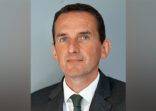It is often difficult to make a case for emerging market equities given the extent to which they have lagged, particularly the US, over the past decade and a half, although such was their underperformance, they even managed to lag UK and continental European equities last year.
Emerging market stocks tend to do well when the US dollar is weakening, global rates are falling and the world economy is expanding at a healthy rate, which obviously meant that last year was a difficult period for them.
However, there are reasons to be optimistic. For one thing, emerging market valuations look attractive. According to AllianceBernstein, the MSCI Emerging Markets Index trades at a price-to-forward earnings valuation of 11.7 times, a 39% discount to the MSCI World.
Having learned their lessons during previous crises, central banks in emerging markets have also in many cases performed better than the US Federal Reserve in taming inflation, which has also allowed them to cut interest rates earlier.
Perhaps the biggest, and most surprising factor, currently counting in their favour is the performance of China equities, which still dominates the index. The MSCI China index has rallied 21.01% in US dollars this year from its lows in January.
Indeed, such has been the underperformance of China equities in the past several years that many investment managers have begun separating out the country from the rest of emerging markets in their fund offerings.
The argument is favour of separating out China is the extent to which it has dominated the MSCI Emerging Markets Index (accounting for more than 41% at its peak, although now down to 25.13%) has meant that investors have tended to overlook other markets.
At the same time, China is operating in a different economic environment to most other emerging markets, grappling with deflation and interest rates trending lower for several years now, for example.
Against this background, Darius McDermott, managing director at Chelsea Financial Services, chose the Federated Hermes Global Emerging Markets SMID Equity fund and the Invesco Emerging Markets ex-China fund for this week’s head to head.
| Federated Hermes | Invesco | |
| Size | $19.1m | $129.9m |
| Inception | 2018 | 1995 |
| Managers | Kunjal Gala | James McDermottroe, Charles Bond |
| Three-year cumulative return | -22.75% | 8.34% |
| Three-year annualised return | -7.46% | 3.49% |
| Three-year annualised alpha | -3.90 | 7.69 |
| Three-year annualised volatility | 15.85 | 15.94 |
| Three-year information ratio | -0.49 | 1.23 |
| FE Crown fund rating | n/a | **** |
| OCF (retail share class) | 0.65% | 1.1% |
Investment approach
The Federated Hermes fund draws its ideas from the firm’s considerable analyst team and then looks at the fundamentals of each individual stock while also factoring in the macroeconomic backdrop.
The fund aims to hold 75-100 individual stocks and has a preference for undervalued companies. Its small and mid-cap focus means it is able to buy stocks up to $15bn in market capitalisation and hold them when they reach $20bn-$25bn.
ESG is an important part of its screening process and the fund eschews stocks involved in fossil fuels, tobacco and arms manufacturing.
Meanwhile, the Invesco fund focuses on a company’s fair value, which means they often take positions in stocks which are out of favour. As a result, they have a fairly lofty return target, seeking double-digit growth from each stock they buy.
Probably the biggest difference with the Federated Hermes fund is that the Invesco fund does not have any exposure to China whatsoever. This is because the team believes concentration risks are reduced from separating out China and it also allows the fund to increase its exposure to the IT, financials and energy sectors.
McDermott also notes that the Invesco fund has less of a focus on growth names compared with the Federated Hermes fund.
Sector allocation:
| Federated Hermes | Invesco | ||
| Information Technology | 22.43% | Information Technology | 29.6% |
| Industrials | 21.77% | Financials | 24.7% |
| Financials | 12.44% | Consumer Discretionary | 9.4% |
| Consumer Discretionary | 9.93% | Materials | 7.2% |
| Materials | 9.08% | Consumer Staples | 6.2% |
| Healthcare | 7.69% | Healthcare | 4.7% |
| Communication Services | 5.55% | Industrials | 4.4% |
| Utilities | 3.04% | Communication Services | 4.1% |
| Real Estate | 2.52% | Others | 6.7% |
| Consumer Staples | 2.43% | Cash | 3% |
| Energy | 1.69% |
Top five holdings:
| Federated Hermes | Invesco | ||
| VA Tech Wabag | 3.04% | Taiwan Semiconductor Manufacturing Co | 9.6% |
| Fairfax India Holdings | 2.79% | Samsung Electronics | 8.7% |
| InPost | 2.76% | HDFC Bank | 4.1% |
| Gedeon Richter | 2.63% | Samsung Fire & Marine Insurance Co | 3.3% |
| Accton Technology | 2.5% | Naspers | 3.2% |
Performance

McDermott concedes that the performance of the Invesco fund has been much stronger, largely due to the absence of any China holdings, although he also praises its pragmatic, valuation-driven process.
In contrast, the performance of the Federated Hermes fund has been more challenging with 2022 being a particularly challenging year as the fund has been swimming against the tide of a challenging backdrop for small-caps.
“I would say performance could be stronger, but SMID valuations have been on a downward trajectory between 2021-2023,” said McDermott.
“More small caps are now suffering because leverage costs have risen – the quality focus means the team are hopefully not as exposed to any significant degree to this theme.”
Discrete calendar year performance
| Fund | YTD* | 2023 | 2022 | 2021 | 2020 |
| Federated Hermes | 6.23% | 6.24% | -25.76% | 3.21% | 21.79% |
| Invesco | 10.31% | 16.08% | -11.47% | 1.00% | 17.44% |
Manager review
McDermott notes that both funds have strong emerging markets teams running each fund.
Charles Bond is a fund manager for Invesco’s Asian and emerging market equities team’s global emerging market equities strategy. He previously worked at Chelsea Financial Services.
Meanwhile, James McDermottroe joined Invesco in August 2013 as an interim, taking internships with the emerging market equities and US equities team before becoming a permanent member of the investment team in December 2013.
At Federated Hermes, Kunjal Gala took on sole management responsibilities for the fund in 2022 after a well-planned transition period from founding manager Gary Greenberg.
Gala joined Hermes in 2012 to work in the Asia ex-Japan team. He previously worked as a senior financial analyst at Morgan Stanley.
Conclusion
McDermott remains very much on the fence when asked which fund he prefers.
“These are two incredibly different products. One is a small and mid-cap portfolio which has underperformed in recent years, although to a fair degree this is through no fault of its own. This is also an area of the market which now has attractive valuations,” he said.
“The other invests in large and mid caps and is backed up by an excellent valuation-driven process. It has also had a strong tailwind because the life of the fund has coincided with the major challenges in the Chinese economy (which as we know it does not invest in).”
“You could make an argument for blending the pair together.”

















